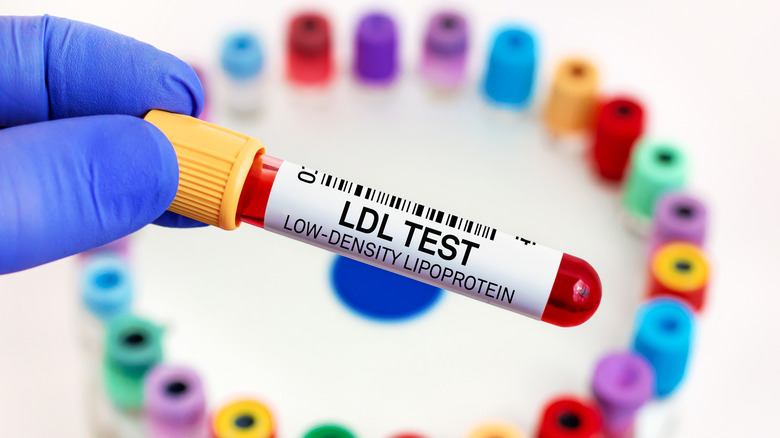How Eating Too Much Sugar Can Impact Your Cholesterol
Cholesterol is a hot topic in health and wellness, and for good reason. This waxy, fat-like substance plays a crucial role in our overall well-being, affecting everything from heart health to brain function. However, cholesterol is often misunderstood and unfairly gets a bad reputation. It's actually an essential part of our body's proper functioning, helping to make up cell membranes, hormones, and even vitamin D. But, like with most things, too much of a good thing can be harmful. High levels of LDL cholesterol, also known as "bad" cholesterol, can lead to various health issues, including heart disease.
Interestingly, recent research, including a 2016 study published in the medical journal Progress in Cardiovascular Diseases, has suggested that refined carbohydrates like sugar may be linked to our cholesterol levels in a surprising way. It seems that excessive consumption of sugar can increase triglyceride levels and decrease HDL cholesterol, the "good" cholesterol, in our bloodstream, which can lead to an unfavorable lipid profile. Understanding the impact of sugar on cholesterol can ultimately help improve heart health.
Sugar's impact on good and bad cholesterol
The Framingham Heart Study, one of the longest-running and most influential cardiovascular studies in the world, has found that people who consume the most sugar-sweetened beverages have a higher risk of developing high triglycerides and low HDL cholesterol. According to the National Heart, Lung, and Blood Institute, triglycerides are a type of fat found in the bloodstream, and high levels can increase the risk of heart disease. This research shows that eating too much sugar can increase the production of triglycerides in the liver. A 2009 study published in the Journal of Nutrition found that dietary fructose, a natural sugar found in fruit, vegetables, and honey, caused significant increases in triglycerides. The increased triglyceride levels can contribute to the formation of plaque in arteries, a process known as atherosclerosis, which can ultimately lead to heart problems (via Johns Hopkins Medicine).
High-density lipoprotein (HDL) cholesterol is also called "good" cholesterol. HDL cholesterol is responsible for removing excess cholesterol from the bloodstream and carrying it to the liver for disposal. However, the study also showed that excessive sugar intake is associated with lower levels of HDL cholesterol. This can affect the balance of lipids in the bloodstream, which can lead to the buildup of arterial plaque and potentially contribute to health problems.
Strategies to protect against sugar-related cholesterol concerns
Maintaining healthy cholesterol levels is an important goal. One way to achieve this is by following the recommended guidelines for sugar intake. According to the American Heart Association, women should limit their daily added sugar intake to no more than 100 calories (6 teaspoons), while men should aim for no more than 150 calories (about 9 teaspoons). This limit applies to all added sugars, including those in processed foods and beverages.
When shopping for food and drinks, read the nutrition labels to identify sources of added sugars. Keep an eye out for terms like sucrose, high-fructose corn syrup, and agave nectar, among others. Sugary drinks like soda and fruit juice are often a significant source of added sugars, so limiting these and choosing water, herbal tea, or beverages without added sugars is a good idea.
Whole foods like fruits, vegetables, whole grains, and lean proteins are great options because, although they naturally contain sugars, they also have essential nutrients and fiber that slow sugar absorption. If you're craving something sweet, try to be mindful of portion sizes and choose smaller servings to stay within your daily sugar limit. Preparing meals at home gives you control over the ingredients and reduces the chances of hidden sugars in restaurant dishes. Even natural sweeteners like honey and maple syrup should be used in moderation, as they also contribute to overall sugar intake.



